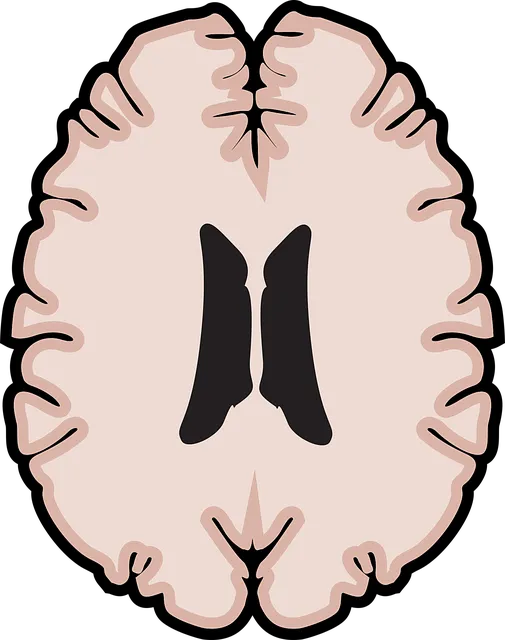Cultural competency at Longmont Kaiser Permanente enhances patient care through understanding and respecting diverse cultural backgrounds, improving satisfaction and outcomes. The accessible behavioral health phone line offers timely support, while training programs like workshops and simulations equip providers to bridge cultural gaps. This comprehensive approach includes education, role-playing, and community engagement activities, leading to improved mental wellness and an inclusive healthcare environment for all individuals.
“Healthcare provider cultural competency training is an essential aspect of delivering quality care in a diverse society. This article delves into the concept, definition, and profound importance of cultural competency in healthcare. We explore the unique role of behavioral health in fostering culturally competent care, with a case study highlighting Longmont Kaiser Permanente’s innovative approach. Furthermore, practical strategies for implementing and evaluating effective cultural competency programs are presented, emphasizing best practices, including insights from the Longmont Kaiser Permanente behavioral health phone number.”
- Understanding Cultural Competency in Healthcare: Definition and Importance
- The Role of Behavioral Health in Cultural Competent Care
- Longmont Kaiser Permanente's Approach to Training: A Case Study
- Implementing and Evaluating Effective Cultural Competency Programs
Understanding Cultural Competency in Healthcare: Definition and Importance

Cultural competency in healthcare refers to the ability of healthcare providers to understand, appreciate, and interact effectively with patients from diverse cultural backgrounds. It involves recognizing and respecting differences in values, beliefs, and behaviors, and adapting services to meet individual needs. This is crucial given the growing diversity of patient populations across the country, including areas like Longmont where Kaiser Permanente behavioral health phone number is a key resource for many.
In terms of importance, culturally competent care enhances patient satisfaction, improves treatment outcomes, reduces healthcare disparities, and fosters stronger relationships between providers and patients. Social Skills Training, Mental Illness Stigma Reduction Efforts, and Compassion Cultivation Practices are among the strategies employed to develop this competency. These initiatives not only promote understanding but also help in breaking down barriers caused by cultural differences, ensuring that everyone receives quality care tailored to their unique backgrounds.
The Role of Behavioral Health in Cultural Competent Care

Cultural competency in healthcare goes beyond understanding diverse cultures; it involves addressing the unique challenges faced by individuals with mental health conditions from various backgrounds. Behavioral health plays a pivotal role in this context, offering crucial services that complement primary care. At Longmont Kaiser Permanente, behavioral health professionals are readily available via their dedicated phone line to provide support and guidance. This accessible resource is instrumental in fostering culturally competent care, especially during times of crisis.
The integration of behavioral health into cultural competency training equips healthcare providers with the skills to navigate complex issues like mental illness stigma reduction efforts. By learning effective communication techniques and crisis intervention strategies, professionals can offer sensitive and tailored care. Moreover, risk management planning for mental health professionals becomes more nuanced as they learn to recognize and respect cultural differences, ensuring safe and inclusive treatment environments.
Longmont Kaiser Permanente's Approach to Training: A Case Study

Longmont Kaiser Permanente has pioneered an innovative approach to Healthcare Provider Cultural Competency Training, setting a benchmark for organizations worldwide. Their strategy involves a multi-faceted program that combines educational workshops, real-world simulations, and ongoing support networks. This comprehensive method ensures healthcare providers gain practical skills in navigating diverse cultural landscapes, enhancing patient interactions, and delivering more personalized care.
The organization’s commitment to mental wellness is evident through their Behavioral Health Phone Number, providing easy access to expert guidance. They also launched a Mental Wellness Podcast Series Production, offering valuable insights into various mental health topics, promoting awareness, and fostering open conversations within the community. This holistic training and resource availability have significantly contributed to improved patient outcomes and a more inclusive healthcare environment.
Implementing and Evaluating Effective Cultural Competency Programs

Implementing effective cultural competency training within healthcare organizations is a multifaceted process. Longmont Kaiser Permanente behavioral health phone number can serve as a valuable resource for institutions looking to enhance their programs. These initiatives should be tailored to address the specific needs and backgrounds of the diverse patient population served. One way to achieve this is by incorporating a mix of educational workshops, role-playing scenarios, and community engagement activities. For instance, Mood Management and Stress Management Workshops Organization can equip healthcare providers with culturally sensitive strategies for addressing mental health concerns.
Evaluation is an integral part of ensuring program effectiveness. Organizations should employ both qualitative and quantitative methods to gauge the impact of cultural competency training. This includes collecting feedback from participants, tracking improvements in patient outcomes, and measuring changes in provider attitudes and behaviors. By analyzing these data, healthcare institutions can identify areas for enhancement and adapt their programs accordingly, fostering a more inclusive and effective delivery of care.
Cultural competency training in healthcare, as demonstrated by Longmont Kaiser Permanente’s successful program, is not just a best practice but an essential component of modern medical care. By understanding and addressing cultural differences, healthcare providers can significantly improve patient outcomes and experiences, especially within diverse communities. Incorporating behavioral health strategies further enhances this process, ensuring that emotional and psychological aspects of cultural competency are also addressed. To learn more about Longmont Kaiser Permanente’s behavioral health services, visit their official website or contact them via phone for detailed information. Effective cultural competency programs not only benefit patients but also enrich the professional development of healthcare workers, fostering a more inclusive and equitable healthcare system.






